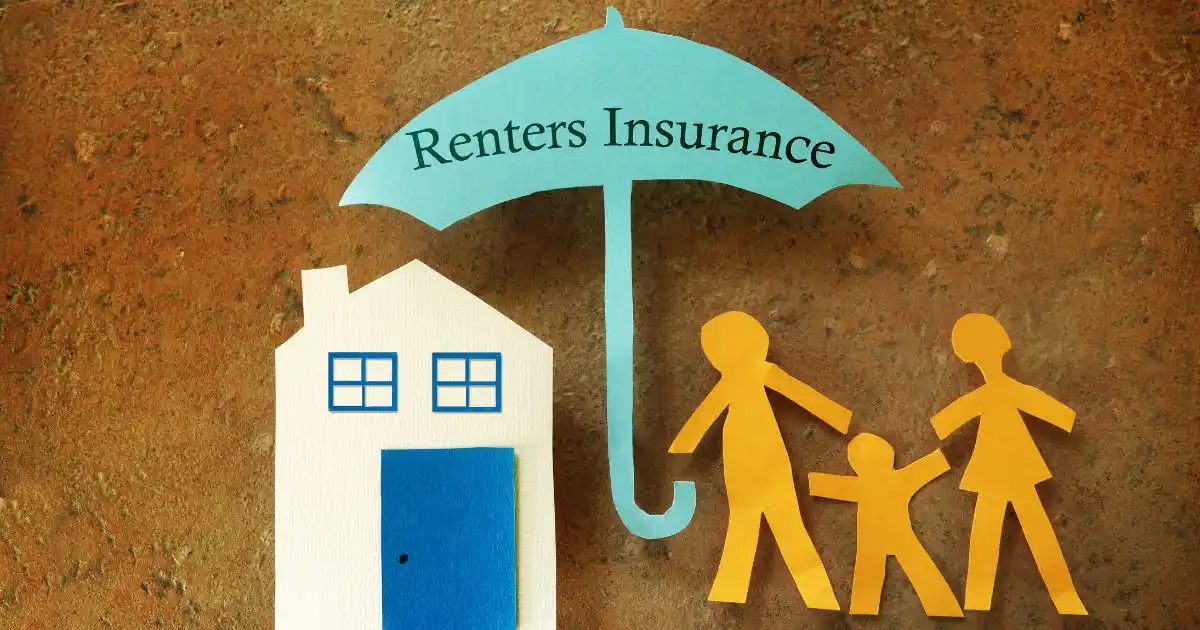If you rent a house or apartment, you might wonder: how much is renters insurance? The good news is that renters insurance is usually one of the most affordable types of coverage you can buy. For the price of a few cups of coffee each month, you can protect your belongings and yourself from unexpected events.
In this guide, we’ll explain what renters insurance is, how much it costs on average, what factors affect the price, and how you can save money while still getting good protection.
What Is Renters Insurance?
Renters insurance is a type of insurance policy for people who rent their homes. Unlike homeowners insurance, which covers the building itself, renters insurance focuses on the renter’s needs. It protects three main areas:
- Personal Property – This covers your belongings, such as furniture, electronics, clothing, and jewelry, if they are damaged or stolen.
- Liability Protection – If someone gets hurt in your rental or you accidentally damage someone else’s property, liability coverage can help pay for medical bills or legal costs.
- Additional Living Expenses – If your rental becomes unlivable due to a covered event like a fire, this coverage helps pay for temporary housing and food costs.
In short, renters insurance gives you financial protection when things go wrong, without costing a fortune.
How Much Is Renters Insurance on Average?
On average, renters insurance in the United States costs between $15 and $25 per month. That equals about $180 to $300 per year.
This makes renters insurance much cheaper than other types of insurance. For example:
- Car insurance often costs over $100 per month.
- Homeowners insurance usually costs more than $1,000 per year.
For less than $1 a day, you can protect thousands of dollars’ worth of belongings and avoid large out-of-pocket costs if an accident happens.
Factors That Affect the Cost of Renters Insurance
While the national average is helpful, your actual cost may be higher or lower. Many factors influence the price of renters insurance:
1. Location
Where you live has a major impact on your rate. If your area has a high risk of natural disasters, theft, or fires, you may pay more. For example, renters in coastal states prone to hurricanes may face higher premiums than renters in the Midwest.
2. Coverage Amounts and Limits
The more coverage you want, the higher your monthly premium will be. For instance, insuring $50,000 worth of property will cost more than covering $20,000. You can also choose different liability limits, usually ranging from $100,000 to $500,000.
3. Deductible
The deductible is the amount you pay out of pocket before your insurance kicks in. A higher deductible lowers your monthly cost but means you pay more if you file a claim. A lower deductible raises your monthly cost but reduces your financial burden in a claim.
4. Credit and Claims History
Insurance companies often look at your credit score. A higher score can lead to lower rates. If you’ve filed many claims in the past, insurers may see you as a higher risk and charge more.
5. Optional Add-Ons
Standard renters insurance covers most belongings, but if you own expensive items like jewelry, art, or collectibles, you might need extra coverage. Adding these endorsements will increase your premium.
Average Renters Insurance Cost by State
Costs vary widely across the country. Here are examples of how much renters insurance might cost in different states:
- Texas: Around $20 per month due to higher risk of storms.
- California: About $18 per month, though wildfire zones may cost more.
- New York: Roughly $16 per month for city renters.
- Florida: $22–$25 per month, since hurricanes increase risk.
- Ohio: Around $13 per month, among the cheapest states.
These averages show how your location matters. Urban areas, coastal states, or regions with frequent weather events often cost more.
How to Save Money on Renters Insurance
Even though renters insurance is already affordable, there are ways to lower your premium further:
Bundle Policies
Many insurers give discounts if you buy renters insurance along with auto insurance or another policy. Bundling can save you up to 20%.
Raise Your Deductible
Choosing a higher deductible lowers your monthly payment. Just make sure you can afford the deductible amount if you ever need to file a claim.
Improve Your Credit Score
A good credit history often leads to lower rates. Paying bills on time and reducing debt can help.
Install Safety Features
Some insurers give discounts if your rental has smoke detectors, fire alarms, or security systems. These reduce risk, which lowers your cost.
Shop Around
Always compare quotes from multiple insurers. Prices vary, and you may find a better deal without sacrificing coverage.
Is Renters Insurance Worth the Cost?
Absolutely. Renters insurance is one of the best deals in insurance. For a small monthly cost, you can protect yourself from large financial losses. Here’s why it’s worth it:
- Theft Protection: If someone steals your laptop, renters insurance can help you replace it.
- Fire Damage: If a fire destroys your furniture, the policy pays for replacements.
- Liability Coverage: If a guest slips and gets hurt, your liability coverage helps with medical bills or legal fees.
- Peace of Mind: Knowing you’re covered makes renting less stressful.
Without renters insurance, you’d have to pay out of pocket for all these costs, which can easily add up to thousands of dollars.
How to Get Renters Insurance
Getting renters insurance is simple. Here’s how you can do it:
- Make an Inventory – List your belongings and estimate their value. This helps you know how much coverage you need.
- Compare Quotes – Visit insurer websites or use comparison tools to get multiple quotes.
- Choose Coverage – Pick the right amount of personal property and liability coverage for your situation.
- Apply Online or by Phone – Most insurers let you apply and pay online within minutes.
- Review Your Policy Annually – As you buy more belongings, update your coverage to stay protected.
FAQs About Renters Insurance Costs
How much is renters insurance per month?
Most people pay between $15 and $25 per month, depending on location and coverage.
Does renters insurance cover roommates?
No. Each roommate usually needs their own policy, unless you both are named on the lease and policy.
Can landlords require renters insurance?
Yes. Many landlords require renters to have insurance before signing a lease.
What’s the cheapest renters insurance company?
It depends on your location and needs. Companies like State Farm, Lemonade, and Allstate are often affordable, but it’s best to compare quotes.
Conclusion
So, how much is renters insurance? In most cases, renters insurance costs just $15–$25 per month. For less than the price of a streaming subscription, you can protect your belongings, cover liability claims, and gain peace of mind.
Renters insurance is affordable, easy to buy, and worth every penny. Whether you live in a big city apartment or a small rental house, this coverage can save you from huge financial losses. If you don’t have a policy yet, take a few minutes today to compare quotes and get covered.










